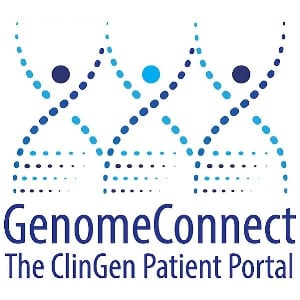What can you do to share your data as a patient?
Our Cancer Genetics Division Director, Danielle Bonadies, was scheduled to present today at FORCE, a patient conference, to highlight resources for patients to contribute their own data to research. Unfortunately, the conference was canceled due to Hurricane Matthew. However, we still wanted to bring you the information about how to share your data as a patient. Below are some of the patient registries she planned to discuss and the features of each that can benefit you. Please considering visiting these registries and signing up!

Genome Connect
“A patient portal, or registry, that is working to build the knowledge base about genetics and health that will allow researchers and doctors to study the impact of genetic variation on health conditions”
Focus: All genetic conditions
Your Part: Health information is collected through 15-30 minute surveys. Genetic test results are uploaded and verified by study staff. All information is deidentified and shared.
Benefits: Participant Matching System which is where participants can request to be connected with others with a similar diagnosis, age, gender or geography. Also can connect with researchers for studies.

PROMPT
“Prospective Registry Of MultiPlex Testing (PROMPT) is an online research registry for patients and their families helps researchers answer the question: ‘How do genetic variants affect your cancer risk?’”
Goal: To more clearly understand cancer risks and follow people with mutations or variants for research
Focus: Hereditary Cancer Genes
Your Part: Register and share your genetic test report
Benefits: Contributing towards research
ABOUT Network

American BRCA Outcomes and Utilization of Testing (ABOUT) is a research registry and “the first national effort to invite people from across the U.S. to share their experience with hereditary breast, ovarian, prostate, melanoma, pancreatic and related cancers.”
Goal: Better understand and assess the needs, knowledge, and decisions of people with a personal or family history of breast, ovarian, or related cancers. Identify and address gaps in care, services, and research related to HBOC to improve health outcomes for people.
Focus: BRCA carriers and high risk families
Your Part: Informed consent form, initial questionnaire, information about your personal and family history and genetic test results

ICARE
“Inherited Cancer Registry (ICARE) is a registry-based research study and represents a clinical-research-community partnership among medical practitioners, researchers and members of the general population.”
Goal: Improve access to cancer genetics expertise for patients and healthcare providers.
Focus: Hereditary Cancer
Your Part: Informed consent form, initial questionnaire, information about your personal and family history, provide copies of your genetic test results and family tree, donating a saliva sample (optional), can participate via phone, email, or mail.
Benefits: Furthering research efforts, newsletters of clinical and research updates and family sharing letters

